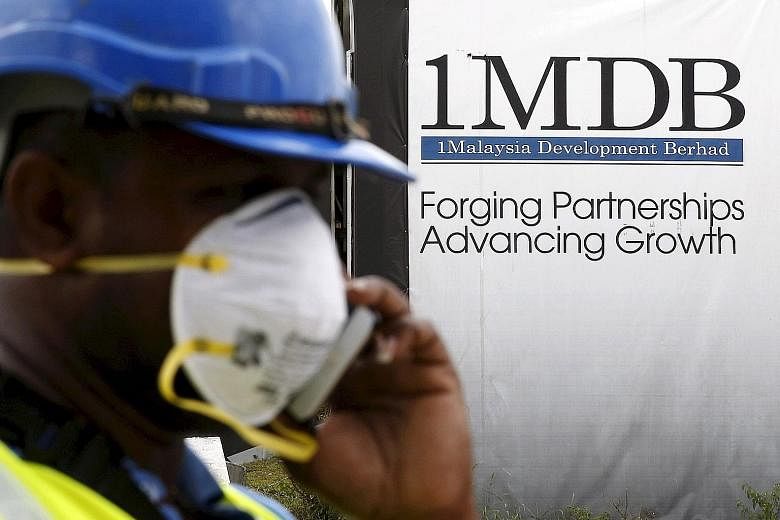State-owned 1Malaysia Development Berhad (1MDB) was declared in default yesterday after it failed to settle a US$50.3 million (S$68 million) debt payment on billions of dollars in bonds guaranteed by an Abu Dhabi state-owned sovereign wealth fund which, for its part, said it would honour its obligations to bond holders.
The declaration of default against 1MDB by Abu Dhabi's International Petroleum Investment Corp, or IPIC, immediately exposes Prime Minister Najib Razak's government to more than US$6.481 billion in debt owed to the Gulf emirate.
IPIC, in a statement issued yesterday, said: "A 1MDB default does not cross-default on IPIC."
The sovereign fund also said that it would pay the US$50.3 million interest instalment to bond holders, which passed the final deadline yesterday evening, based on its commitments as the sole guarantor of the bond issue.
1MDB officials declined comment. But Malaysian government officials close to the situation say that the dispute surrounding the US$3.5 billion that IPIC helped 1MDB raise in May 2012 is likely to go into private arbitration.
"It is one option that is being considered at the highest levels (of the Abu Dhabi and Malaysian governments)," said a senior official.
The dispute is the latest twist in the ongoing financial fiasco at 1MDB, a brainchild of Datuk Seri Najib that is now the subject of investigations in seven countries, including Singapore. The investigations, which centre on billions of dollars that allegedly have gone missing at the state-owned strategic investment fund, has put the spotlight on Mr Najib's administration as well as governance issues in Malaysia.
The two sovereign wealth funds are feuding over fund transfers of roughly US$3.54 billion that 1MDB said it made to units of IPIC under obligation of a May 2012 bond agreement. But IPIC declared that it never received those monies, triggering questions about the payment of the US$50.3 million in interest that were due.
The deadline for that payment was April 18. But the bond agreement also stipulated that a default would only be declared if 1MDB did not settle the outstanding amount within a grace period of five working days.
The grace period lapsed yesterday and bond market strategists and hedge fund investors say a number of scenarios are now possible.
Typically, when the deadline for an instalment interest payment is missed and a default declared on the bond issue, the trustee of the bond - which in this case is a unit of The Bank of New York Mellon - will call on IPIC as the guarantor to settle the instalment payment and ultimately monies due to bond holders under the bond agreement.
IPIC will then demand payment for whatever it is owed from 1MDB and if 1MDB refuses to pay, the Abu Dhabi sovereign wealth fund will call on the guarantees of the Malaysian government.
The fallout from the default was discussed at meetings between Mr Najib and 1MDB's president and group executive director Arul Kanda in recent weeks. According to government officials familiar with the meetings, Mr Arul informed the Prime Minister that the Malaysian government would be liable for US$6.481 billion under indemnity clauses with IPIC in the event of a default.
The exposure, which amounts to roughly 4 per cent of the Malaysian government's outstanding debt, includes the US$3.5 billion bond, US$1.15 billion in cash advances and another US$481 million in a disputed payment the Abu Dhabi entity says it is owed, according to Malaysian government officials.

